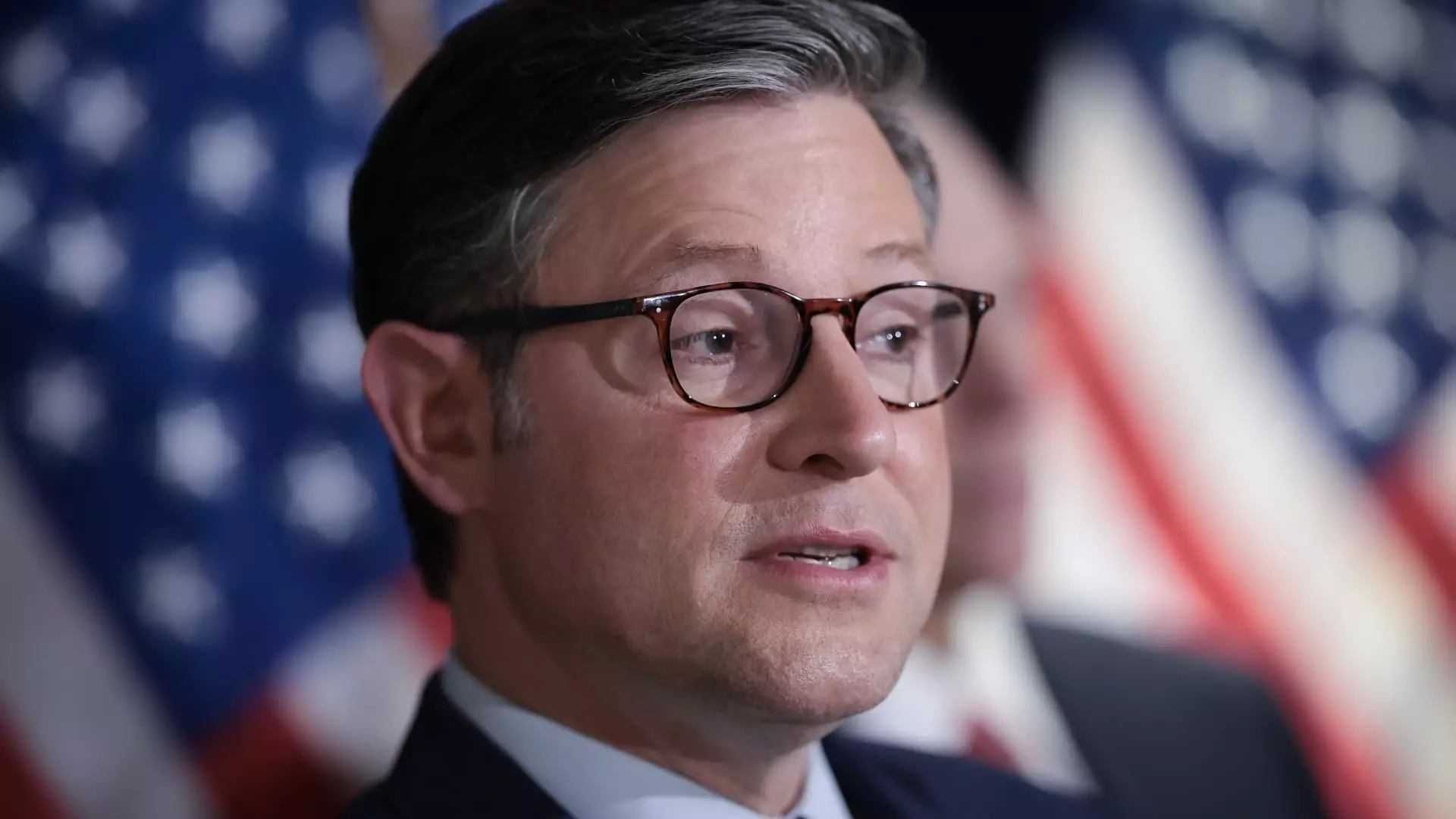The political landscape in the United States continues to evolve, marked by shifting agendas, party loyalties, and the complex influence of legislation such as the CHIPS and Science Act. Recently, House Speaker Mike Johnson’s comments regarding the potential repeal of this crucial semiconductor manufacturing legislation ignited a firestorm, highlighting the intricate relationship between party politics and the realities of economic policy in America.
Johnson’s Initial Statement: A Political Misstep
While campaigning for a vulnerable Republican congressman in New York, Speaker Johnson suggested that Republicans might consider repealing the CHIPS and Science Act, a crucial bipartisan initiative aimed at bolstering domestic semiconductor production. His statement raised immediate concerns, especially considering the pressing economic implications for a district poised to benefit significantly from a new Micron manufacturing plant. Johnson’s comment quickly garnered backlash, not only from Democrats but also from industry stakeholders who recognize the act’s importance in enhancing U.S. competitiveness in the tech sector.
Republicans and critics alike were quick to jump on Johnson’s words, interpreting them as an indication of a broader conservative agenda targeting even popular government initiatives. This sentiment was particularly pronounced after Donald Trump, the presumptive Republican nominee, voiced his disdain for the act in a recent address. Johnson’s capitulation later—clarifying that the CHIPS Act was not on the chopping block—serves as both a reminder of the precariousness of his position and the broader Republican strategy that is often caught between Trump’s base and the economic realities faced by constituents.
The CHIPS and Science Act, which allocated $54 billion to revitalizing the semiconductor sector, has been heralded by the White House as a catalyst for substantial economic activity. With projections indicating that this legislation could generate hundreds of thousands of jobs and attract hundreds of billions in investments, its importance cannot be understated. Vice President Kamala Harris has effectively used this narrative on the campaign trail, framing it as evidence of Democrats’ capability to manage the economy effectively.
The act’s implementation has already seen significant success, leading to $30 billion in funding across 23 projects in 15 states, expected to create over 115,000 jobs in manufacturing and construction. These figures highlight a crucial pivot point: while some Republican voices may want to dismantle initiatives that empower sectors reliant on government support, such actions could severely hinder current and future economic gains that constituents depend on.
The notion of backtracking has become a troubling pattern for Speaker Johnson. His initial comments on potential repeal were a reflection of the Republican strategy, which has often gravitated towards a more aggressive stance against perceived federal overreach. Yet, the repercussions of such statements remind him, and others in the party, that local implications matter deeply, especially when tens of thousands of jobs hang in the balance.
In the face of criticism, Johnson’s subsequent clarification aimed at proposing ways to “streamline” rather than repeal the act only partially assuaged concerns. This adjustment speaks volumes about the fractures within the party as it endeavors to maintain voter trust while also appeasing Trump’s hardline stance on fiscal conservatism. The juxtaposition between upholding a significant economic initiative and catering to a base that seeks to dismantle perceived governmental excess encapsulates this ongoing struggle.
Campaign Implications and the Broader Political Context
As the campaign season heats up, Democrats see an opportunity to leverage Johnson’s misstep to win favor among working-class voters. The discourse on manufacturing jobs, especially in regions largely dependent on heavy industry, becomes pivotal as they seek to reinforce their message of economic stability and growth enabled by progressive legislation. Governor Kathy Hochul’s stark warning emphasizes the political risk faced by Republicans aiming to undercut job-creating legislation.
The broader implications of Johnson’s comments also underscore the internal conflict within the Republican Party. As members balance loyalty to Trump with the need to maintain support from constituents benefiting from initiatives like the CHIPS Act, a potentially damaging rift could emerge. This scenario raises critical questions about the future direction for Republicans as they navigate competing interests and ideological divides.
The comments made by Speaker Mike Johnson serve as a reflection of the delicate balancing act that Republicans must navigate as they address economic concerns while aligning with the vocal base represented by Trump. The bipartisan nature and significance of the CHIPS and Science Act cannot be overlooked, illustrating a growing realization among some party leaders that public sentiment leans towards supporting job security through government engagement rather than dismantling it. As Republicans gear up for midterm elections, creating a cohesive message that reconciles these conflicting realities will be paramount to their electoral success.


Leave a Reply